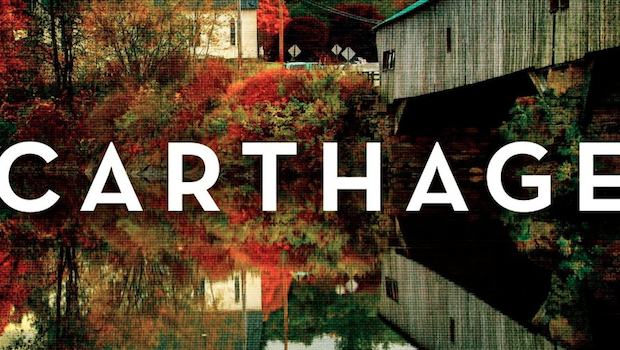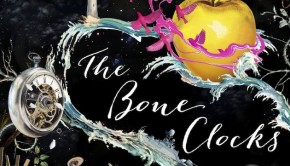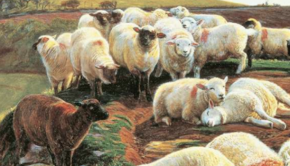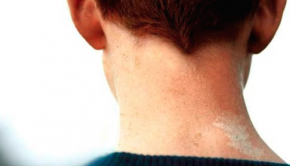Carthage by Joyce Carol Oates
| Press reviews | Buy the book | Have your say |
Blurb: Zeno Mayfield’s daughter has disappeared into the night, gone missing in the wilds of the Adirondacks. But when the community of Carthage joins a father’s frantic search for the girl, they discover instead the unlikeliest of suspects – a decorated Iraq War veteran with close ties to the Mayfield family. As grisly evidence mounts against the troubled war hero, the family must wrestle with the possibility of having lost a daughter forever. (Ecco Press, January 2014)
Review roundup for Accursed by Joyce Carol Oates
Review roundup for Mudwoman by Joyce Carol Oates
Review roundup for Daddy Love by Joyce Carol Oates
Frances Perraudin, The Observer
“The plot takes bizarre and unexpected turns that – if you make it past the slightly laboured first 200 pages – keep you absorbed until the end. What at first appears to be a straightforward narrative, of a family torn apart by a loss caused by a distant war, develops into an exploration of violence in a much wider sense – psychological and emotional. Carthage is an immensely proficient novel, with careful and elegant prose, and interesting experiments with form.”
Lesley McDowell, The Scotsman
“ In Oates’s fiction, teenage girls are always dangerous, but they are always vulnerable too, and this double-sidedness makes them extraordinary in her eyes. They are victims in war when state apparatus and groups of men can easily overpower and obliterate them, as Brett’s fellow soldiers did to the Iraqi girl. But they are dangerous in peacetime – they can wreak havoc, devastate lives and rupture families … often devastating, always compelling, rich and profound …”
Carla McKay, The Daily Mail
“As always, the author has a wonderfully tart take on her fellow Americans and there are some priceless characters involved in this thriller-like tale as well as some astonishing twists. And, importantly, at the end, redemption. ”
John Burnside, The Guardian
“By the end of the novel, we see that all of its younger protagonists are in search of a transformation that, like Cressida’s Escher imitation, will carry them through some profound blackness before returning them, absolved of some unspecified guilt, to their original places in the world. This process could be called redemption, but redemption can only be won by the expiation, not only of one’s own sins, but also of those of the fathers that, as the clown Launcelot remarks in The Merchant of Venice, are “laid upon the children”. At its Dostoevsky-inspired conclusion, Carthage is, perhaps, darker than We Were the Mulvaneys, but what it attains is a profound and poignant vision of American guilt, and its potential for some kind of absolution.”
Ann Treneman, The Times
“Joyce Carol Oates writes about America’s big themes. Her prose is elegant. She is the mistress of all she surveys. I just wish she’d taken a bit more time to edit herself, to hone, to perfect.”
The Independent on Sunday
“Each character takes turns with the narrative viewpoint, but the language throughout best reflects the troubled perspective of Cressida. The sentences are short, breathless, exhausting. Finally, she understands: “And if the corporal had murdered her, the younger sister of his (ex)-fiancée, he must have been punished for this murder? She’d had to be very sick, mentally ill … not to have realised this.” It’s a bit of a “duh!” moment, as Cressida resolves to make amends, but Oates resists the temptation to spell out her authorial judgement here. Is Cressida mentally ill? Selfish? Or a victim?”
Jonathan Sunyer, The Financial Times
“The ever-prolific Joyce Carol Oates is at the top of her game in this suspense-filled thriller. But Carthage is also a novel about guilt, punishment and forgiveness.”
Edmund Gordon, The Sunday Times
“In its dismayed vision of the poverty and ignorance of small-town America — in its sense of the domestic costs of foreign wars — the novel is propelled through its bumpier passages by a coruscating political rage.”
OMNISCORE:












